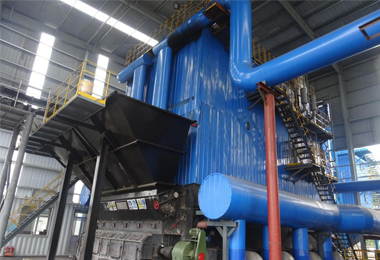
Sen . 14, 2024 19:52 Back to list
thermic fluid boiler
The Role and Benefits of Thermic Fluid Boilers
Thermic fluid boilers, also known as thermal oil heaters, have emerged as a vital component in various industrial processes. Unlike traditional water steam boilers, which operate at high pressure, thermic fluid boilers utilize organic heat transfer fluids. This innovation allows for efficient heat transfer at lower pressures, making them an attractive option for many applications.
The primary function of a thermic fluid boiler is to provide a continuous supply of heat for processes that require steady temperature control. Industries such as chemical manufacturing, food processing, textiles, and paper production rely on these boilers for their high-temperature heating needs. With the ability to reach temperatures of up to 300°C (572°F) or even more, thermic fluid boilers are ideal for applications that demand precise thermal management.
One of the significant advantages of thermic fluid boilers is their energy efficiency. By using heat transfer fluids that can withstand high temperatures without changing phase, these boilers minimize energy losses during the heating process. Furthermore, they can be designed for both direct and indirect heating systems. In indirect systems, the thermal fluid circulates through a heat exchanger, which transfers heat to the process fluid, maintaining efficient thermal energy use.
thermic fluid boiler

Safety is another critical benefit of thermic fluid boilers. Since they operate at lower pressures compared to traditional steam boilers, the risk of explosive incidents is significantly reduced. Additionally, the heat transfer fluids used can be selected based on their non-toxic and environmentally friendly properties, enhancing the safety profile of the entire heating system.
The maintenance of thermic fluid boilers is also straightforward. Unlike steam boilers that require inspections for pressure vessels, thermic fluid systems generally have fewer components that can wear down over time. Regular monitoring of the fluid quality and temperature ensures optimal performance and can extend the lifespan of the system significantly.
Moreover, thermic fluid boilers offer design flexibility. They can be customized to meet the specific requirements of different industries and applications. This flexibility includes the choice of burner types, automation levels, and additional features such as variable speed drives for pumps to optimize energy usage further.
In conclusion, thermic fluid boilers represent a solid choice for industrial heating applications, combining efficiency, safety, and versatile design. As companies seek to optimize their production processes and reduce energy costs, the adoption of thermic fluid technology is likely to continue to grow, solidifying its role as an essential component in the landscape of industrial heating solutions.
-
High-Efficiency Commercial Oil Fired Steam Boiler for Industry
NewsJul.30,2025
-
High-Efficiency Biomass Fired Thermal Oil Boiler Solutions
NewsJul.30,2025
-
High Efficiency Gas Fired Thermal Oil Boiler for Industrial Heating
NewsJul.29,2025
-
High-Efficiency Gas Fired Hot Water Boiler for Sale – Reliable & Affordable
NewsJul.29,2025
-
High Efficiency Biomass Fired Hot Water Boiler for Industrial and Commercial Use
NewsJul.29,2025
-
High-Efficiency Biomass Fired Hot Water Boiler for Industrial Use
NewsJul.28,2025
Related PRODUCTS






















